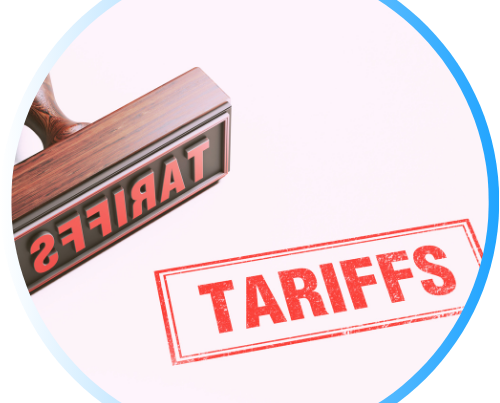Rate Related Update and Market Conditions
Market Conditions
TPEB (Trans-Pacific Eastbound)
-
Trans-Pacific demand has softened heading into July, with booking activity slowing after an early peak season surge in late May and early June. Spot rates to the West Coast are approaching fixed levels, while rates to the East Coast and Gulf are beginning to decline amid growing capacity. Both the June 15 GRI and PSS have been fully withdrawn across all U.S. gateways.
FEWB (Far East Westbound)
-
Shippers on the Far East Westbound lane are facing intensified rate pressure, with the SCFI up 60% over six weeks. July GRIs are already being announced, and space is fully committed through late June. Rising booking activity is driving upward pressure on rates, especially for high-density cargo.
TAWB (Trans-Atlantic Westbound)
-
Trans-Atlantic westbound rates remain stable for now, with most carriers deferring PSS increases until July. One carrier may push for a late June increase on West Mediterranean routes, but broader implementation is on hold. Demand remains relatively consistent across North and South Europe.
Operational Updates
TPEB:
-
Equipment availability remains stable across key Asian load ports, supporting smoother outbound flows. No major shortages are currently reported, even with sustained volumes to the Pacific Southwest gateway.
FEWB:
-
Port operations across Europe face intermittent challenges, with strikes in Belgium and Sweden adding to inland congestion. Rhine River barges are delayed due to low water levels, and German rail bottlenecks are further straining inland container movements.
TAWB:
-
While main European ports are operating with sufficient equipment, shortages persist in inland areas including Austria, Hungary, and Southern Germany. Portuguese ports and Southern Turkey also continue to face container imbalances, making carrier haulage the preferred option in affected regions.
Capacity Management
TPEB:
-
Carriers are maintaining relatively high vessel utilization, with space levels stabilizing at 85–90% through late June and into July. However, the injection of extra loaders, particularly into the Pacific Southwest, is creating pockets of overcapacity. Blank sailing activity continues to ease, with cancellation rates expected to fall to 6–7% in the coming weeks.
FEWB:
-
Strong forward bookings are limiting available space, with vessels fully committed through late June. Carriers are adjusting rotations and using returning empties to cover outbound demand, which remains strong due to upstream supply shifts from TPEB.
TAWB:
-
-
European port congestion has eased, freeing up additional space for Trans-Atlantic sailings. While congestion persists in pockets of the Mediterranean, overall capacity is manageable, and no significant blank sailings have been reported across the trade.
-
Sources: xeneta.com, maersk.com, yangming.com, evergreen-line.com, supplychaindive.com
📌 Current U.S. Tariff Status (as of June 20, 2025)
-
U.S.-U.K. Trade Deal Enacted: A new executive order reduces Section 232 tariffs on U.K. auto parts (from 25% to 10%) and autos (from 27.5% to 10% for up to 100,000 vehicles). Civil aircraft-related products from the U.K. are now exempt from steel and aluminum duties.
-
Aluminum Import Rules Tighten: Starting June 28, aluminum imports without a known country of smelt or cast must be declared as Russian origin and will incur a 200% duty. Importers must also use Russia’s Chapter 99 HTS code when filing.
-
New Steel-Based Appliance Tariffs: Beginning June 23, steel-containing appliances like washing machines and refrigerators are subject to 50% tariffs based on the value of steel content under expanded Section 232 regulations.
Source: whitehouse.gov, politico.com, whitehouse.gov


Peak Season Surcharges Announced for India–U.S. Trade Amid Uncertainty
Container carriers serving the India–U.S. East Coast route have announced substantial peak season surcharges (PSS) set to begin mid-July. Rate increases range from $1,000 to $4,000 per container depending on the carrier. These adjustments come despite ongoing market uncertainty tied to global tariff policies, as operators remain hopeful for a strong booking season. Some lines may implement multiple rounds of increases throughout July to reflect anticipated demand shifts.
Canadian Labor Report Urges Province-Wide Bargaining for BC Ports
A new report commissioned by Canada’s Labor Ministry calls for a province-wide bargaining model for British Columbia ports. The report cites fragmented negotiations and delayed government intervention as key contributors to recent strikes and labor disruptions. By centralizing talks between employers and unions at the provincial level, the government aims to reduce unrest and stabilize port operations critical to Canada’s trade infrastructure.


U.S. West Coast Ports Report Cargo Drop; Summer Rebound Anticipated
Cargo volumes at U.S. West Coast ports fell sharply in May due to the impact of tariffs. The Port of Long Beach saw an 8.2% decline in throughput, while the Port of Los Angeles reported a 5% decrease. Imports and exports both declined year-over-year, though port leaders remain optimistic. A summer surge is expected as retailers move goods ahead of peak season and take advantage of temporary tariff reductions in place through July and August.

